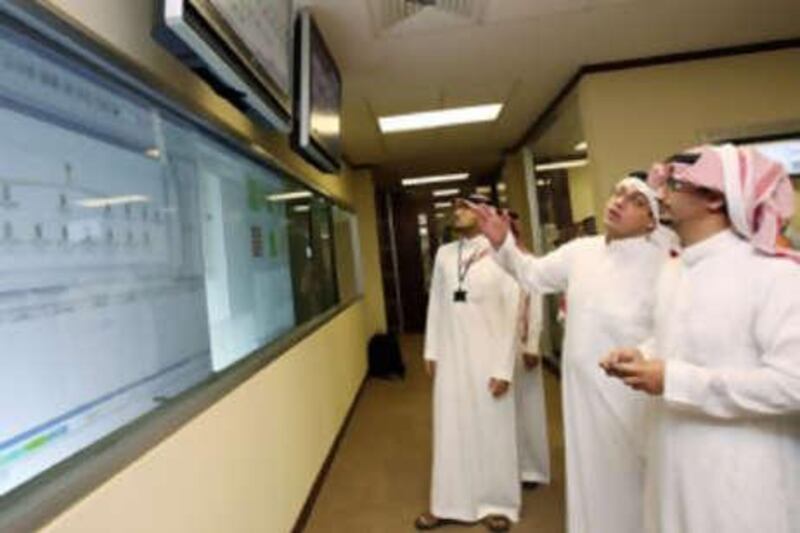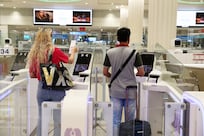There are few better ways to draw attention to an investment bank's presence in a market than by producing excellent research. Not only does this encourage liquidity, but it can also provide a healthy deal flow for the firm. Until recently, this has been lacking in the Gulf region. Coverage is not up to the level that you find in emerging markets elsewhere, while the lack of critical mass makes it difficult to establish any consensus.
According to a survey carried out by Euromoney magazine, which appears in its August edition, the best research in the Middle East is carried out by regional players such as Global Investment House, Shuaa Capital and EFG-Hermes. They emerged as the most highly rated analysts, in most instances sharing the first three places in each industry sector. But there is room for additional players: the breadth and depth of coverage is very poor, with only 60 per cent of companies in the UAE, Saudi Arabia and Qatar being covered.
Elsewhere the figure is much lower. Only 21 companies in the region have coverage from at least four brokers - this of a total of 858 listed companies. EFG-Hermes, for example, actively covers 75 stocks, making sure to issue, at the minimum, regular quarterly reports as well as in-depth update notes. "The number of stocks we cover will rise significantly by year end," says Eiji Aono, head of research at EFG-Hermes.
As global investors pour more money into the Middle East they are demanding an increasing amount of company information. Equity research in the Middle East has not only been slow to respond to the demand, but also uncertain about the degree of advice it can give to clients. For example, analysts have been reluctant to issue "Sell" warnings, although an informal code has resulted in most people understanding that a "Hold" recommendation implies that you should dump the stock. This is an important step forward because it shows objectivity.
A negative investment view is not always welcome and domestic investors don't like it very much, but such recommendations are the beginning of a mature market. When EFG-Hermes issued a "Sell" note on Zain Saudi in June, the analysts were heavily criticised by the local press. "Many of the markets are still immature in terms of their appreciation for fundamental research and their understanding of its purpose," says Mr Aono of EFG-Hermes. "Many local investors as well as some of the companies are only now beginning to realise that investment research is not issued just to drive a stock higher, but to provide a balanced view as to the potential for the company and most importantly, for the stock." Since the note on Zain Saudi was issued, the stock has fallen by 17 per cent.
In a similar fashion, Morgan Stanley's bearish sentiments on the Dubai property market sent shares tumbling, prompting recriminations from some of the companies highlighted in the report. However, it remains difficult to benefit from falling markets in the Middle East. Short-selling is either impossible from a structural point of view - or just downright illegal. Is this likely to change? Walid Shihabi, director of research at Shuaa Capital, thinks that there is the possibility of the introduction of derivatives, but it will depend on a fresh approach from the regulators.
"From a regulatory perspective, Saudi Arabia is probably the most developed," he says. "There is still quite a bit to be done in the UAE, Egypt has stagnated, while Kuwait has no independent regulator at all." New funds are launching every day, aware that growth is more likely to come from the Gulf than elsewhere over the next 12 months. According to data from Emerging Portfolio Fund Research Global, there have been net inflows of US$1.3 billion (Dh4.8bn) into Middle East and North Africa equity funds. This contrasts sharply with a figure of just $51 million last year.
The potential for growth has not escaped the notice of international bankers. Swiss bank UBS is opening an equity research office in Dubai at the end of August to cover stocks in the Gulf region as part of an expansion in the Middle East. Other bulge bracket banks like Morgan Stanley and Lehman Brothers have also boosted their teams in the region in recent months. There is more than enough work to go around: there are more than 110 initial public offerings scheduled for the second half of this year, according to Zawya IPO Monitor, with 55 in Saudi Arabia, more than 30 in the United Arab Emirates and the rest in Bahrain, Qatar, Kuwait and Oman. Most of the deals are coming from family-owned enterprises that are looking for funds to expand overseas.
The local firms say they welcome the challenge. "Competition will help investors and encourage the markets to be more mature," says Faisal Hasan, head of research at Global Investment House. "At the moment most stocks are covered by two or three players. We would like to see companies in the region to be covered by eight to nine research houses. There is room for growth, it will encourage institutional investors, increase transparency and corporate governance." Just as long as they don't poach their best analysts.
rwright@thenational.ae





